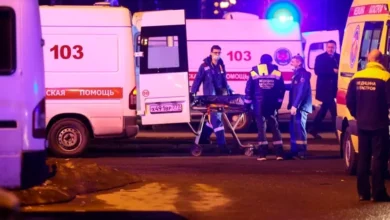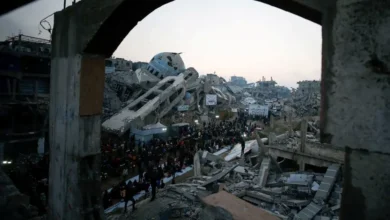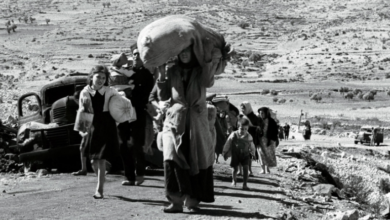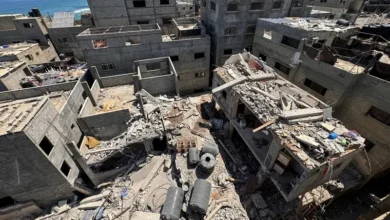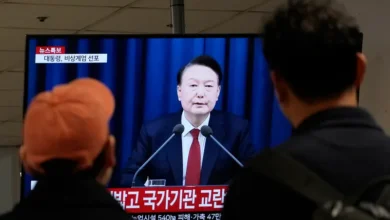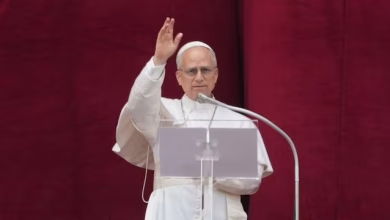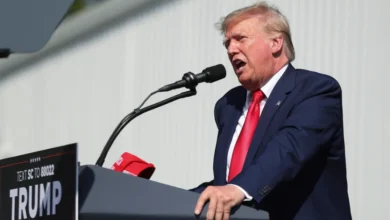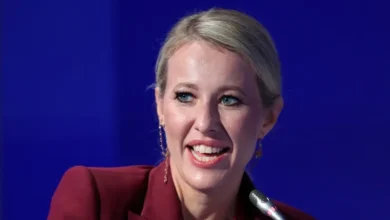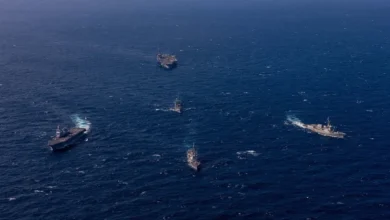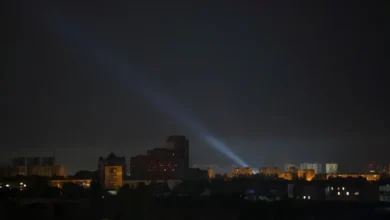Hamas releases first batch of Israeli captives under ceasefire deal
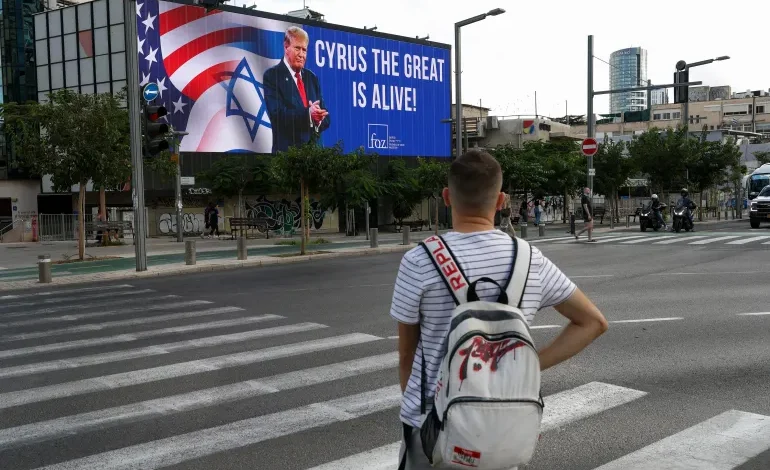
Hamas has released seven Israeli captives into the custody of the International Committee of the Red Cross (ICRC), as the hotly anticipated first phase of a ceasefire deal to end the war in Gaza unfolds.
Cheers broke out in Israel, where tens of thousands of people had gathered to watch public screenings of the handovers on Monday, as television channels announced that the captives were with the ICRC.
Officials involved in the operation confirmed that the seven captives were now in the custody of the Red Cross, the Reuters news agency reported. There was no immediate information on their condition.
The DPA news agency reported that the captives would be transferred to the Israeli military base of Re’im for medical checks, showers and clothing changes.
Families would be reunited with their loved ones before the captives were flown to hospitals for further treatment.
‘A new path’
Under the deal, Hamas will release the 20 living Israeli captives in exchange for nearly 2,000 Palestinian prisoners held by Israel, many without charge.
An official involved in the exchange told Reuters that all the Palestinian prisoners due to be released had boarded buses at Israeli prisons.
Speaking on Sunday, government spokeswoman Shosh Bedrosian said Israel anticipates all 20 captives would be returned early on Monday.
Israel’s Channel 12 reported on Monday that the remaining 13 living captives will be released at 07:00 GMT in the central Gaza Strip.
A Hamas source earlier told Al Jazeera Arabic that the captives had been moved to three locations in the enclave in advance of their transfer to the ICRC.
Once Israel has confirmed all its captives are inside Israeli territory, it will begin releasing Palestinian prisoners, Al Jazeera Arabic reported.
The prisoners include 250 Palestinians serving life sentences. Imprisoned Palestinian leader Marwan Barghouti, whose release Palestinians have long sought, will not be among them, Israel has said.
Some prisoners will be released in the occupied West Bank, where their relatives have been instructed by Israel not to hold celebrations or speak to the media.
Israel is also preparing to receive the bodies of 28 captives confirmed to have died in captivity, Bedrosian said.
Speaking in a televised address on Sunday evening, Israeli Prime Minister Benjamin Netanyahu said he hoped the captives’ release would be a moment of unity for the country, despite controversy over his handling of the war.
“This is an emotional evening … because tomorrow, our children will return to our borders,” said Netanyahu, quoting a biblical verse. “Tomorrow is the beginning of a new path – a path of rebuilding, a path of healing and, I hope, a path of united hearts.”
Some of the families of captives have criticised Netanyahu, accusing him of prioritising military victory over their release. On Saturday, when the United States envoy to the Middle East, Steve Witkoff, praised Netanyahu’s leadership at a rally in Tel Aviv, many in the crowd booed.‘Trump’s show’
The planned exchange comes three days after the Israeli government approved the first phase of a deal aimed at ending the war in Gaza, and just as US President Donald Trump, who spearheaded the agreement, visits Israel before a summit in Egypt.
Trump left for Israel from the Joint Base Andrews near Washington, DC, on Sunday afternoon, with Secretary of State Marco Rubio, Secretary of War Pete Hegseth and CIA chief John Ratcliffe accompanying him on Air Force One.
“This is going to be a very special time,” said Trump before boarding the flight. “Everybody’s cheering.”
On board Air Force One, Trump told reporters that the captives may be released “a little early”, that his relationship with Netanyahu was good, and that Qatar deserved credit for the role it had played in mediating the ceasefire.
“The war is over. You understand that,” he added.
Al Jazeera correspondent Nour Odeh, reporting from Amman, Jordan, because the network is banned in Israel, said: “It is Trump’s show.”
